Energy
Could the G7 Summit in Alberta be a historic moment for Canadian energy?

From Resource Works
Canada can be the democratic world’s top energy supplier, and the G7 Summit in Alberta is the perfect time to commit to that.
Canada is at the crossroads of opportunity as the leaders of the G7 convene in Kananaskis, Alberta.
An Ipsos poll has named Canada the top preferred oil supplier among G7 countries for the second time since 2023. No less than 68 percent of G7 respondents declared that Canada was among their top three choices to supply oil.
This should be yet another motivator for Canada to solidify itself as a key player in energy security and economic stability among the democratic nations.
The timing and location of this year’s G7 summit shows how important Canada can be to the world. Alberta, Canada’s energy heartland, is the source of nearly all of the country’s oil, and the provincial government wants more of it to reach global markets.
Those geopolitical anxieties caused by Russia’s invasion of Ukraine in 2022 have not disappeared, and Canada’s allies and partners like the European Union (EU), Japan, South Korea, and India are looking for a reliable and responsible partner to supply them with energy, and we are the best and most obvious choice.
Willing partners are easy to find overseas, but the other provinces and the federal government need to become equally enthusiastic first.
There is more to this than mere symbolism. Canada embracing its position as the most desirable supplier of oil makes complete sense.
In 2023, Ipsos found that Canada’s political stability, comprehensive environmental rules, and strong regulatory frameworks are why it ranked first among preferred oil suppliers. Norway is another popular option, but Canada has the advantage of better market access to the United States and the Asia-Pacific, along with established infrastructure and an open government.
It all combines to create a distinct advantage for Canada in the world of trade.
The US has slid as a popular oil supplier, to Canada’s advantage, and we need to capitalize on that more than ever.
As Russia’s bloody, disruptive war with Ukraine continues to drag on, the EU still needs sources of alternative energy to make a clean break with Moscow. Russia had previously served as the bloc’s effective gas station, albeit one armed with nuclear weapons.
G7 member states like Britain and the EU are looking to slap even stricter limits on Russian energy exports that go beyond what is already in place. Whatever Russia has to lose is Canada’s to gain.
Canada began to enlarge its export capacity last year with the completion of the twinning of Trans Mountain pipeline (TMX), enabling Canada to double the amount of oil it can pipe to Pacific markets. Shipping larger amounts of Canadian energy to partners in Japan, India, South Korea, and others has never been easier.
It was a monumental example of how investing in the right sorts of infrastructure can improve economic security, both nationally and internationally. Internally, developing the oil industry is a long term goal of First Nations leaders and communities.
The myth of First Nations opposing the expansion of oil and gas is one that needs to die. The Indian Resource Council, which represents over 130 First Nations, has repeatedly championed the responsible development of natural resources as a means of fostering economic independence and community renewal.
Many First Nations and other Indigenous groups have invested heavily into pipelines, production sites and storage facilities, and want to expand it further. In terms of pure economic value, there is not another industry that has created more wealth in Indigenous communities across Western Canada.
Complacency from the federal government and other authorities at this time could not be timed more poorly as the G7 Summit comes to Alberta. When the gathering ends on June 17, we should hope that it was a turning point where Canada made a direct and clear commitment to modernizing and expanding its oil and gas sector.
Our role in the world can be that of the great democratic alternative to Russia when it comes to supplying energy and other resources. Alberta knows it, as do our allies and Indigenous people across Canada.
Ottawa should listen. It is time to realize our potential to be an even greater energy superpower.
Through that, we can reduce the power of authoritarian, hostile regimes in the world by building a stronger, more unified Canada.
Business
Department of Energy returning $13B climate agenda funding to taxpayers
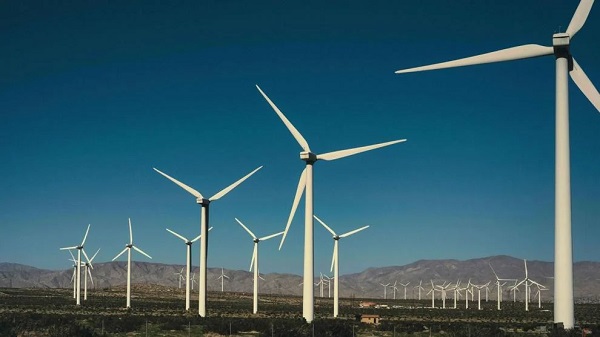
From The Center Square
By
The U.S. Department of Energy will be returning to American taxpayers $13 billion in “unobligated wasteful spending” that was originally intended for former President Joe Biden’s climate agenda.
In response, Larry Behrens from Power the Future told The Center Square that “by returning $13 billion, the Department of Energy under President Trump is showing respect for taxpayers and a willingness to end funding for programs that don’t work.”
Power the Future is a nonprofit dedicated to Americans who work in reliable energy sources.
Behrens told The Center Square that the Department of Energy’s action “is a welcome step toward restoring accountability and letting free markets – not bureaucrats – determine our energy future.”
“The American people made it crystal clear at the ballot box that they don’t want another taxpayer dollar wastefully spent on green scam pet projects,” Behrens said.
Diana Furchtgott-Roth of the Heritage Foundation told The Center Square that with the return of $13 billion, “the deficit will be lower than otherwise.”
When asked what other actions the Department of Energy should take to end wasteful spending, Furchtgott-Roth said that “the Department should comb through its budget and see what projects can be accomplished by the private sector, then end those projects.”
“The Department should also look through its regulations and see which ones impose costs on businesses and families,” Furchtgott-Roth said.
“For instance, the Department should eliminate appliance regulations that prevent companies from producing the gas stoves, boilers, or water heaters that people want to buy,” Furchtgott Roth said.
The Department of Energy announced Wednesday its “intention to return more than $13 billion in unobligated funds initially appropriated to advance the previous Administration’s wasteful Green New Scam agenda.”
The department said its announcement reflects “the [Trump] Administration’s commitment to halt wasteful spending and refocus the department to its core mission.”
For instance, Trump signed the Working Families Tax Cut into law earlier this year, the release said, which “directed the Energy Department to rein in bloated federal spending and expedite the return of unobligated funds to the U.S. Treasury to support hardworking Americans.
“The Department of Energy is working to advance its critical mission of unleashing affordable, reliable and secure energy for all Americans while increasing efficiency and promoting better stewardship of taxpayer dollars,” the release said.
The Department of Energy has not yet responded to The Center Square’s request for comment.
U.S. Secretary of Energy Chris Wright said in the news release: “The American people elected President Trump largely because of the last administration’s reckless spending on climate policies that fed inflation and failed to provide any real benefit to the American people.”
“Thanks to President Trump and Congress, those days are over,” Wright said.
Renewable energy group American Council on Renewable Energy has not yet responded to The Center Square’s two requests for comment.
Behrens told The Center Square, “keep in mind it was Biden’s DOE that funneled billions to an electric vehicle charging program that failed to deliver results.”
“Over $6 billion in EV charging funding has now been flagged as wasteful,” Behrens said.
Behrens also referred The Center Square to a White House document entitled “Ending the Green New Scam.”
Furchtgott-Roth informed The Center Square that “in general, states with the most expensive electricity require renewables (with the exception of Alaska), and states with the least expensive electricity do not require renewables.”
“States should prioritize affordable, resilient, reliable energy,” Furchtgott-Roth said.
“This means getting rid of requirements that a share of electricity be produced with renewables,” Furchtgott-Rott said.
Alberta
Federal policies continue to block oil pipelines
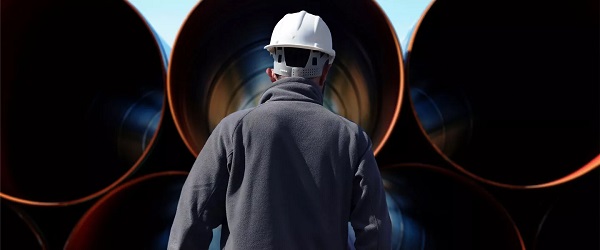
From the Fraser Institute
By Tegan Hill and Elmira Aliakbari
Prime Minister Carney’s recently released list of five projects—which the government deems to be in the national interest and will expedite—doesn’t include a new oil pipeline for western Canada in general or Alberta in particular. The reason given was that no private developer stepped forward to finance or build one. But the reason for that is not a mystery: Justin Trudeau’s damaging energy policies continue to drive away oil and gas investment even though his successor campaigned on a different, more pragmatic approach. It’s no wonder Albertans are frustrated.
Promising to make Canada the world’s leading “energy superpower,” the Carney government in the spring introduced Bill C-5, the “Building Canada Act,” to give the federal cabinet sweeping powers to circumvent existing laws and regulations for projects deemed to be in the “national interest.” In effect, cabinet and the prime minister are empowered to pick winners and losers based on vague criteria and priorities. But while specific projects will be expedited, so far nothing has been done to undo the damaging federal policies that have hamstrung Canada’s energy sector over the last decade.
Trudeau-era changes to the regulatory system for large infrastructure projects included: Bill C-69 (the federal “Impact Assessment Act”); the West Coast tanker ban (as spelled out in federal Bill C-48); and the federal cap imposed exclusively on oil and gas emissions. These have hindered energy investment and development and impeded prosperity, not only in energy-producing provinces, but across the country.
The Energy East and Eastern Mainline pipelines from Alberta and Saskatchewan to the east coast would have expanded Canada’s access to European markets. But the Trudeau government rendered the projects (Energy East and the Eastern Mainline) economically unprofitable by introducing new regulatory hurdles that ultimately forced TransCanada to withdraw from the project.
A year after taking office, the Trudeau government simply cancelled the Northern Gateway pipeline, an already approved $7.9 billion project that would have transported crude oil from Alberta to the B.C. coast, thus expanding Canada’s access to Asian markets. As for Trans Mountain, the one pipeline project that did survive the Trudeau years, after the private investor was frightened off by regulatory hurdles and delays and the federal government took over, costs sky-rocketed to $34 billion—more than six times the original estimate.
With policies like these still in place, it’s no wonder investors aren’t lining up to put big money into Canadian oil and gas. Just how great the discouragement has been is indicated by the 56 per cent inflation-adjusted decline in overall investment in the oil and gas sector between 2014 and 2023 (from $84.0 billion to $37.2 billion).
That decline in investment has had and will continue to have big consequences for the western provinces, particularly Alberta, where energy is a key part of the economy. But it would be a mistake to think the costs are limited to Alberta. From 2007 to 2022, Albertans’ net contribution to federal finances (total federal taxes they paid minus federal money spent on or transferred to them) was $244.6 billion. A strong Alberta helps keep taxes lower and fund public services across Canada.
Canada urgently needs new oil pipelines to tidewater. The U.S. is currently the destination for 97 per cent of our oil exports. This heavy reliance on a single customer leaves us exposed to policy shifts in Washington, such as the recent threat of tariffs on Canadian energy. Expanding pipeline infrastructure both westward and eastward would help diversify our export market into Asia and Europe, as well as strengthen our energy security.
Prime Minister Carney’s short list of projects is another blow to western Canada, and especially Alberta. There’s an obvious reason no private developer has stepped forward to finance or build a new oil pipeline: the Trudeau government’s damaging energy policies. The federal government needs to undo these policies and allow the private sector to make Canada an energy superpower.
-

 Alberta7 hours ago
Alberta7 hours agoFederal policies continue to block oil pipelines
-

 Autism8 hours ago
Autism8 hours agoAutism – what we know
-

 Business2 days ago
Business2 days agoGun Buyback Program creating criminals out of law abiding citizens and directing police away from actual crime
-
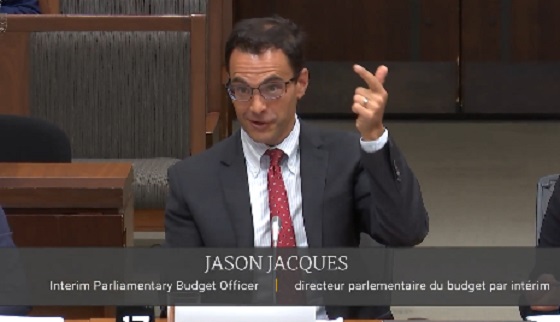
 Business1 day ago
Business1 day ago“If you don’t change, this is dying.” PBO warns Carney’s massive deficits are an extinction level threat
-

 Opinion1 day ago
Opinion1 day agoThe City of Red Deer’s financial mess – KPMG report outlines failure of council to control spending
-

 COVID-1913 hours ago
COVID-1913 hours agoSecond Massive Population Study Finds COVID-19 “Vaccines” Increase Risk of 6 Major Cancers
-
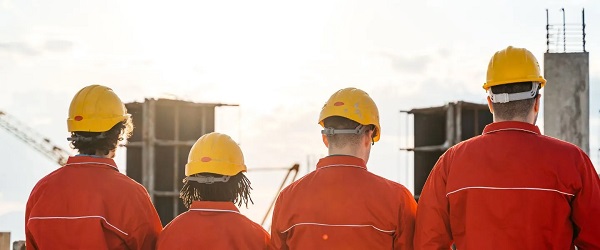
 Energy2 days ago
Energy2 days agoHere’s a list of ways the Carney government can unshackle Canada’s energy sector
-
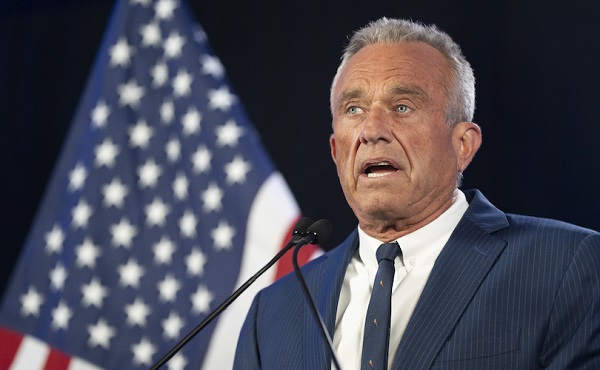
 Health17 hours ago
Health17 hours agoRFK Jr. says US rejects WHO with powerful message about sovereignty and the chronic disease crisis






